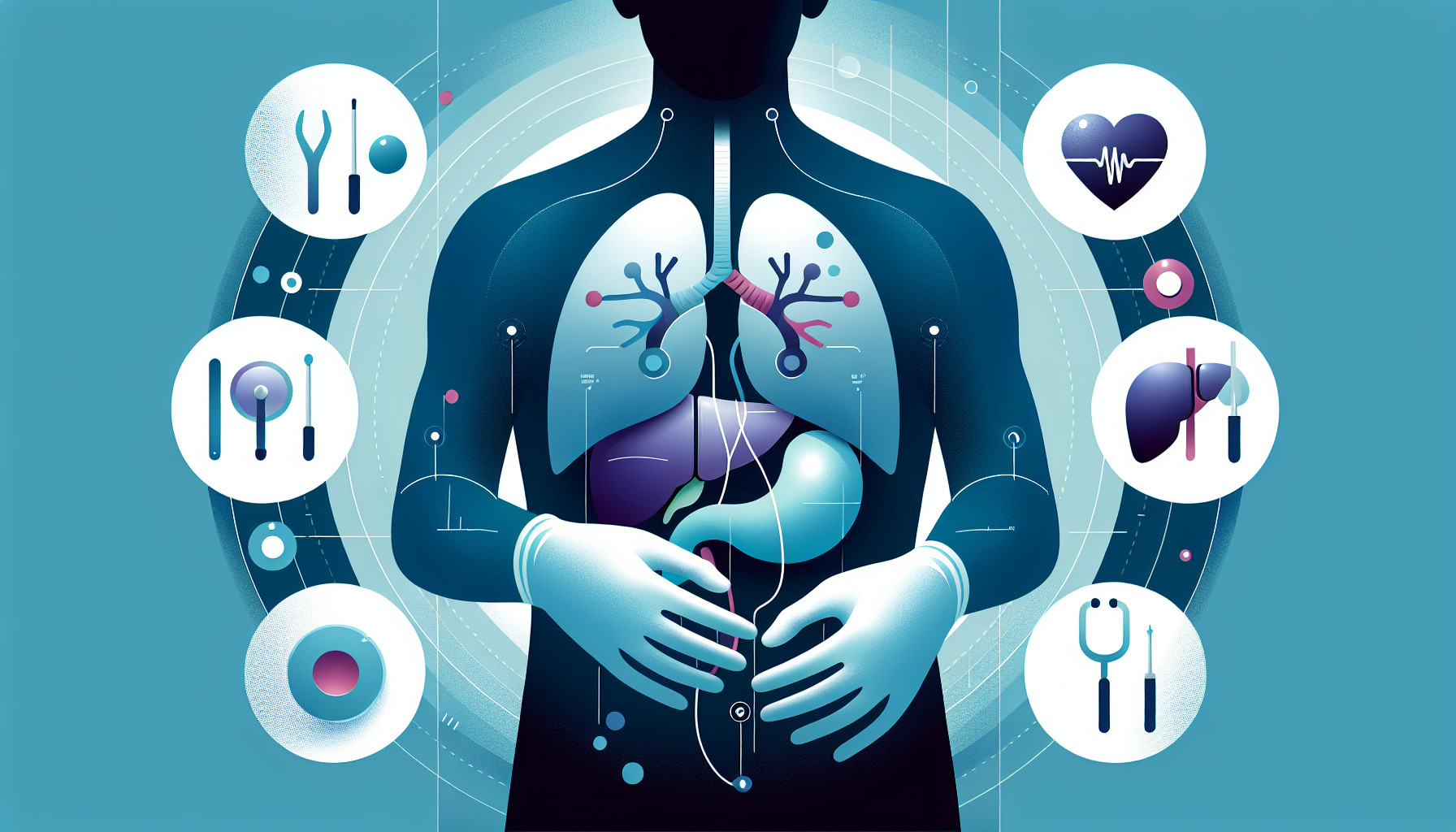Our Summary
This research paper looks at the risk of transferring the SARS-CoV-2 virus (the virus that causes COVID-19) through organ transplants. The researchers examined cases where individuals who did not have the virus received organs from donors who were positive for SARS-CoV-2. The study did not include lungs for transplantation, as they were focusing on other organs like kidneys, livers and hearts.
The research took place between June 2021 and January 2023, during which 26 organs were transplanted from 23 donors who had the SARS-CoV-2 virus to 25 recipients who did not have the virus. After the transplant, only two recipients tested positive for the virus, but they did not have any complications related to it. All patients are currently alive and their new organs are working well.
The researchers concluded that it appears to be safe to transplant non-lung organs from donors with SARS-CoV-2 to recipients who do not have the virus, without any negative effects from the virus.
FAQs
- Can the SARS-CoV-2 virus be transferred through organ transplants?
- What organs were examined in the research study on organ transplants and SARS-CoV-2 virus?
- What were the findings of the study on transplants from donors with SARS-CoV-2 to recipients who do not have the virus?
Doctor’s Tip
One helpful tip that a doctor might tell a patient about organ transplant is to follow all post-transplant care instructions carefully. This may include taking immunosuppressant medications as prescribed, attending follow-up appointments, and monitoring for any signs of infection or rejection. By following these instructions, patients can help ensure the success of their transplant and maintain their overall health.
Suitable For
Patients who are typically recommended for organ transplant include those with end-stage organ failure, such as:
Chronic kidney disease: Patients who are on dialysis or have severe kidney function impairment may be recommended for a kidney transplant.
Liver disease: Patients with end-stage liver disease, such as cirrhosis or liver failure, may be candidates for a liver transplant.
Heart failure: Patients with severe heart failure who have exhausted all other treatment options may be recommended for a heart transplant.
Lung disease: Patients with severe lung diseases, such as chronic obstructive pulmonary disease (COPD) or cystic fibrosis, may be candidates for a lung transplant.
Other conditions: Patients with conditions such as diabetes, autoimmune diseases, or genetic disorders that affect multiple organs may also be recommended for organ transplant.
It is important for patients to undergo a thorough evaluation by a transplant team to determine their eligibility for organ transplant and to assess the risks and benefits of the procedure. Transplant recipients also need to commit to lifelong medication and follow-up care to ensure the success of the transplant.
Timeline
Before the organ transplant:
- Patient is diagnosed with organ failure and is referred for transplant evaluation.
- Patient undergoes extensive medical evaluation to determine eligibility for transplant.
- Patient is placed on the transplant waiting list and waits for a suitable donor.
- Patient receives notification of a potential donor match and prepares for surgery.
- Patient undergoes surgery to receive the organ transplant.
After the organ transplant:
- Patient is closely monitored in the hospital for complications and to ensure the new organ is functioning properly.
- Patient may experience side effects from the surgery and medications.
- Patient begins a lifelong regimen of immunosuppressant medication to prevent organ rejection.
- Patient undergoes regular follow-up appointments and monitoring to check for signs of rejection or other complications.
- Patient adjusts to life with a new organ and may experience improvements in their quality of life.
What to Ask Your Doctor
How common is it for organ donors to have SARS-CoV-2, and what precautions are taken to prevent transmission of the virus during transplantation?
What are the risks and benefits of receiving an organ from a donor who has tested positive for SARS-CoV-2?
What symptoms should I watch out for after receiving an organ from a donor with SARS-CoV-2, and when should I seek medical attention?
How long should I expect to wait for an organ transplant, considering the potential impact of the COVID-19 pandemic on organ donation and transplantation?
Are there any specific guidelines or recommendations for organ transplant recipients during the COVID-19 pandemic, such as wearing masks, practicing social distancing, or avoiding large gatherings?
Will I need to undergo additional testing or monitoring for SARS-CoV-2 after receiving an organ transplant from a donor with the virus?
How will the presence of SARS-CoV-2 in the donor’s organ impact my post-transplant recovery and long-term health outcomes?
What support services are available for organ transplant recipients who may have concerns or questions about the potential risks associated with receiving an organ from a donor with SARS-CoV-2?
How can I best protect myself from contracting SARS-CoV-2 or other infections after receiving an organ transplant, especially during the ongoing COVID-19 pandemic?
Are there any ongoing research studies or clinical trials investigating the safety and efficacy of organ transplantation from donors with SARS-CoV-2, and should I consider participating in any of these studies?
Reference
Authors: Wade J, Petitpas KM, Dar W, Ali A, Radojevic JA, Lawlor MT, Hammond JA, Gluck J, Feingold AD, Jaiswal A, Ebcioglu Z, Einstein M, Morgan G, Emmanuel B, Ye X, Singh JU, Sotil EU, Swales C, Kent R, Richardson E, Cheema F, Serrano OK. Journal: Transplant Proc. 2023 Oct;55(8):1793-1798. doi: 10.1016/j.transproceed.2023.06.008. Epub 2023 Jul 3. PMID: 37487863
